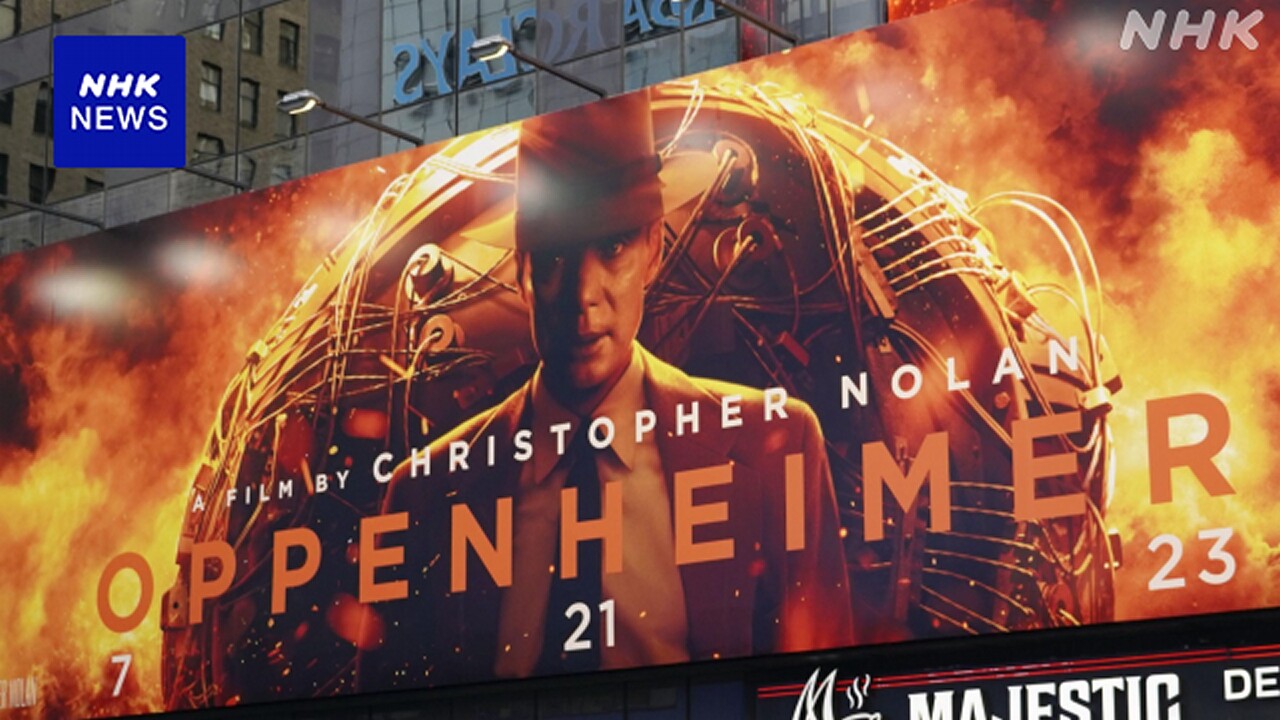A roundtable discussion was held to discuss the abolition of nuclear weapons based on the movie "Oppenheimer," which depicts the suffering of the scientists who developed the atomic bomb and was selected for this year's Academy Award. Opinions were expressed such as wanting to learn about threats.
The roundtable discussion was held by an organization made up of atomic bomb survivors, NGOs, and others.This year's work is based on Robert Oppenheimer, a theoretical physicist who led the development of the atomic bomb in the United States during World War II. Opinions were exchanged on the movie "Oppenheimer," which won seven Academy Awards, including Best Picture and Best Director.
Professor Tatsujiro Suzuki of the Center for Nuclear Weapons Abolition Research at Nagasaki University commented on the fact that the work did not depict the situation in Hiroshima and Nagasaki after the atomic bombs were dropped, saying, ``Although there was some criticism, we deliberately tried to depict the damage caused by nuclear weapons.'' It is thought that the work created an impact by getting people to imagine it without using it.The work as a whole contains a message against nuclear weapons, and by discussing things that were not depicted in the work, students were able to think about the threat of nuclear weapons. I think it might be a trigger."
On the other hand, Yuki Miyamoto, a professor at DuPaul University in the United States who tells local students about the damage caused by nuclear weapons, says, ``If we are going to depict the suffering of the scientists who developed the atomic bomb, we must also properly include the damage caused by the nuclear bomb that caused it.'' It should be depicted.In the United States, the theory of nuclear deterrence that nuclear weapons are necessary to prevent something like the movie from happening is still strong, and there are many victims of nuclear tests in the United States that were not depicted in the movie. We need to make people aware of its existence," he said.
Hideo Asano of the Japan Campaign to Eliminate Nuclear Weapons, which held the roundtable discussion, said, ``Rather than consuming this work as a story of the past, I want people to see it as an issue that continues today and as an opportunity to take action in their own way.'' I was there.
The younger generation who watched the movie
The movie "Oppenheimer" will be released in Japan from March 29th, and according to the distribution company, the box office revenue for the first three days was the highest of any foreign film released in Japan this year. That means it became.
Many of the people who come to see the film are in their 20s, and we heard from the younger generation who watched the film that it increased their awareness and interest in nuclear weapons.
A 23-year-old man said, ``This was my first time looking at the atomic bomb from an American perspective.I have learned about it in school, but I want to use this work as an opportunity to further deepen my knowledge.''
A 28-year-old man said, ``It was an opportunity to learn about what was going on in the United States at the time.I think it is necessary for Japan to remain the ``only country to have suffered atomic bombings'' in order to prevent nuclear weapons from being used again. "It was," he said.
A 28-year-old woman said, ``I wanted to see this work, and when I actually saw it, I was overwhelmed, and it gave me an opportunity to think about not only the atomic bomb, but also the world situation, war, and world peace.'' "I did it," he said.
A-bomb survivor Kunihiko Sakuma: ``I want you to visit the atomic-bombed area''
Kunihiko Sakuma, an atomic bomb survivor from Hiroshima Prefecture who has been campaigning both domestically and internationally for the abolition of nuclear weapons, was exposed to the atomic bomb when he was nine months old, and has suffered from poor health since elementary school, including kidney and liver disease. I did.
Commenting on the worldwide buzz the film has received, Sakuma said, ``We have been telling young people about the misery of war and the inhumanity of nuclear weapons, but through the movie we have taught them what nuclear weapons actually are.'' I think it was an opportunity to get people interested in it."
Regarding the film's lack of portrayal of the atomic bombing sites and survivors, he said, ``I don't think they are downplaying the damage caused by the atomic bomb just because it wasn't depicted, but what happened under the mushroom cloud?'' It is important to think about how to build peace through such misery.Rather than just watching the movie, you should watch the movie in order to judge what nuclear weapons are like. I would like people to visit the atomic bomb sites that were not depicted in the book.''

